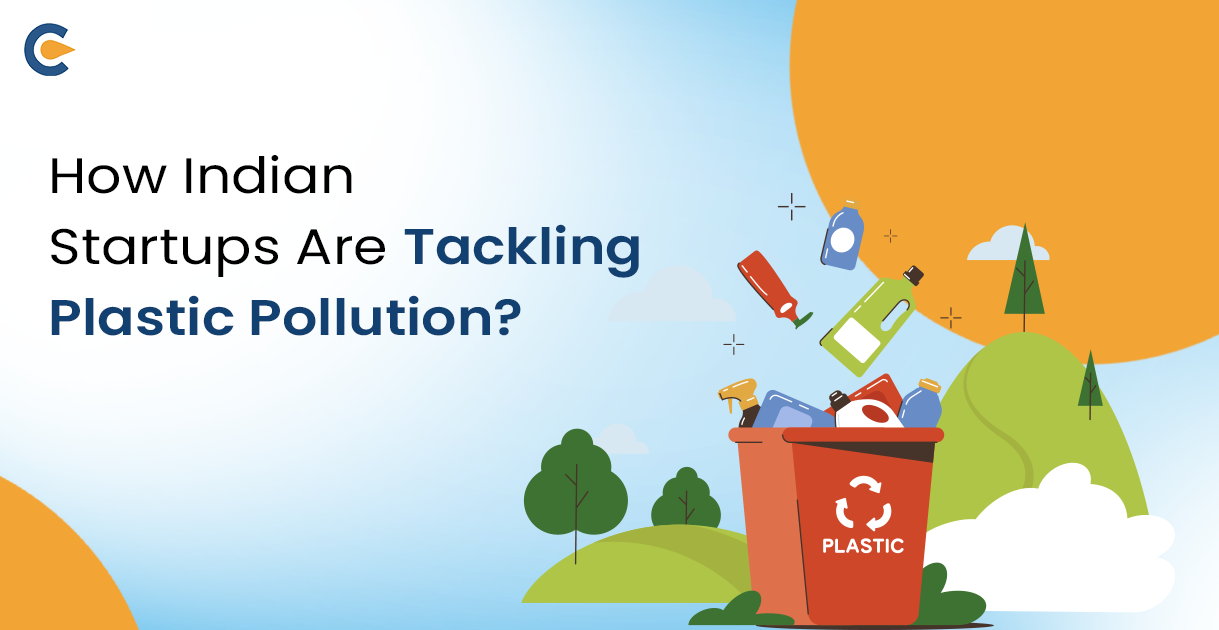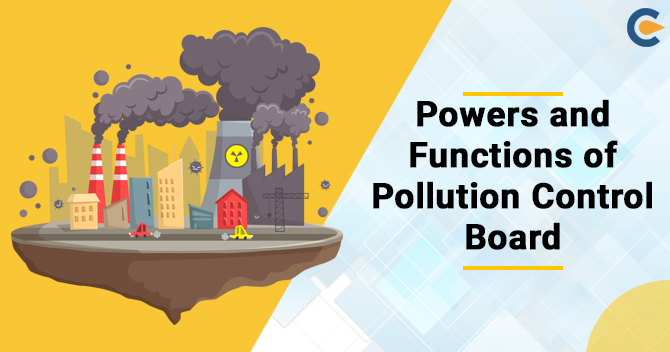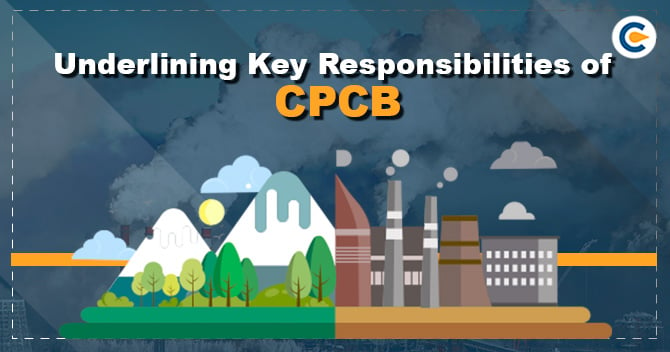The buildup of synthetic plastic items in the environment to the point that they endanger human populations, wildlife, and their ecosystems is known as plastic pollution. “The accumulation of plastic objects (e.g., plastic bottles and much more) in the Earth’s environment that adversely affects wildlife, habitat for wildlife, and humans” is known as plastic waste, or plastic pollution. It also describes the large volume of plastic that is not recycled and is dumped in landfills or, in the case of developing nations, dumped at uncontrolled disposal sites. We have been reliant on plastic since the late 20th century because it is a cheap, adaptable, and sturdy material.
Role of startups in addressing plastic pollution in India
The role of startups in addressing plastic pollution in India are:
Creative solutions:
Startups are leading the way when it comes to creating and putting into practice creative solutions to the plastic pollution challenge. These solutions cover many technological areas, such as circular economy models, biodegradable substitutes, and sophisticated recycling techniques. Startups stimulate innovation in the quest for sustainable practices by thinking beyond conventional paradigms and presenting novel views.
Entrepreneurial spirit:
The spirit of entrepreneurship that flourishes in the startup ecosystem is typified by the ability to see opportunities in obstacles. Startups are driven to develop innovative and practical solutions because they understand how serious the plastic pollution issue is. They are well-suited to handle the challenges of managing plastic waste because they adjust quickly to changing conditions.
Engagement with the community:
Many entrepreneurs actively participate in their local communities to combat plastic pollution at its source. Startups aim to modify consumer behaviour and promote appropriate waste disposal methods through the launch of awareness campaigns, educational initiatives, and cooperative projects. This grassroots strategy encourages a feeling of collective accountability and gives communities the tools to take an active role in the battle against plastic pollution.
Advantages of plastic waste management for Startups
The following are the advantages of tackling plastic and plastic waste management for Startups:
1. Lowering the Cost of Purchasing Raw Materials
A major financial advantage of recycling plastic is the decrease in the price of purchasing raw materials. Producing plastic from raw resources is frequently more expensive than from recycled plastic. Manufacturers may reduce their manufacturing costs and boost their profitability and competitiveness by recycling plastic.
2. Lowering Greenhouse Gas Emissions and Energy Use
Recycling plastic may also save a lot of energy and lower greenhouse gas emissions. Energy is used extensively in the virgin material plastic manufacturing process. On the other hand, recycling plastic uses less energy since it produces fewer greenhouse gases and uses fewer resources during processing, making the environment cleaner and more sustainable.
3. Economic expansion and the creation of jobs
The plastic recycling sector supports economic development and employment creation. For recycling facilities, collection centres, and allied enterprises, professional staff is necessary to carry out the recycling process successfully. Communities may establish sustainable growth, increase local economies, and provide job opportunities by investing in infrastructure for plastic recycling.
4. Lower Expenses for Waste Management
Handling plastic waste places a heavy financial strain on governments and municipalities. Promoting plastic recycling lowers the amount of plastic waste dumped in landfills, which lowers waste management expenses. These financial savings might be used to fund infrastructure improvements, healthcare, and education, among other vital sectors.
Ways to tackle plastic pollution
For companies to significantly contribute to environmental sustainability, addressing plastic waste is essential. Some of the ways through which the startups can tackle plastic pollution are:
1. Select sustainable options
- As an alternative to conventional plastic items, startups can choose sustainable options. Using compostable or biodegradable materials for packaging, cutlery, and other frequently used products is one way to achieve this.
- Selecting sustainable materials lessens the need for non-biodegradable plastics and lessens its impact on the environment.
2. Elimination of single-use plastics in the business
- In order to be proactive, startups should reduce or completely do away with the usage of single-use plastics in their day-to-day operations. This entails locating substitutes for throwaway products such as straws, cups, and plastic bags.
- This approach may include promoting the usage of reusable products or providing rewards to clients and staff who bring their own reusable goods.
3. Education and awareness programs for employees
- Educating staff members about the effects of plastic pollution on the environment may be achieved by implementing programs inside the startup.
- Training courses can include the value of choosing sustainable alternatives, waste management techniques, and responsible plastic use. This might establish an environmentally mindful culture inside the company.
4. Encouraging circular economy in business
- Creating items with the intention of reusing, refurbishing, and recycling them is a key component of implementing a circular economy model. Startups may apply this strategy by thinking about their goods’ whole lifespan.
- This might entail working with recycling facilities to guarantee appropriate disposal and creating take-back programs for used goods.
5. Reuse and recycle
- Startups can take preventative steps to encourage the reuse of products by offering incentives to consumers who return worn things or by creating products that are built to last and have numerous uses.
- Reducing the amount of plastic waste generated overall inside the company can also be achieved by implementing efficient recycling systems. This involves sorting and recycling any plastic waste produced by the company.
Frequently Asked Questions
What additional measures exist to reduce the pollution caused by plastic?
Reusing plastic can contribute to reducing the amount of plastic waste that ends up in landfills and our oceans. When disposing of plastic, exercise caution. Be cautious to dispose of plastic in the proper manner. This means you may either put it in the recycling bin or dispose of it at a hazardous waste disposal site.
How has the problem of plastic pollution been handled in India?
The promotion of substitutes, Extended Producer Responsibility (EPR), Plastic Waste Management Rules, Swachh Bharat Abhiyan, and a ban on single-use plastics are the five primary measures taken by the government to combat plastic pollution.
Why is plastic control so important?
One of the main reasons plastic waste management is so important is because plastic is not a material that biodegrades. This suggests that it does not break down into natural compounds over time and may persist in the environment for hundreds of years.
What pollution is caused by plastic?
The buildup of non-biodegradable plastic in the environment, which damages ecosystems and has a harmful effect on humans, wildlife, and habitats, is known as plastic pollution.
What risks do customers face while using plastic?
Plastic pollution poses a major danger to all life on Earth because the chemical additives used in its manufacturing are very toxic. Recent research indicates that plastics may enter the human bloodstream and stay in our bodies through death.
What was the main objective of the plastics waste management program?
The initiative aims to create techniques for disposing of plastic garbage that are good for the environment. In the process, it seeks to prohibit the use of plastic products and bags and reduce plastic waste across the state.
How is plastic waste created?
Most plastics are not recyclable and do not biodegrade. Furthermore, the breakdown of plastic products produces microplastics, which are little bits of plastic that have the potential to contaminate ecosystems.
What steps do Indian startups take to combat plastic pollution?
By coming up with innovative solutions, encouraging an entrepreneurial spirit, working with communities to alter behaviour, and raising awareness through campaigns and initiatives, startups fight plastic pollution.
What benefits does managing plastic trash provide startups?
Plastic recycling benefits businesses and the environment by lowering the cost of raw materials, lowering greenhouse gas emissions, promoting economic growth, creating jobs, and cutting waste management costs.
What role may startups play in the sustainability of the environment?
By selecting sustainable solutions, doing away with single-use plastics, holding educational events, advocating for a circular economy, and encouraging recycling and reuse inside their operations, startups can combat plastic pollution.
Read Our Article: Pollution Control Board Online Registration











